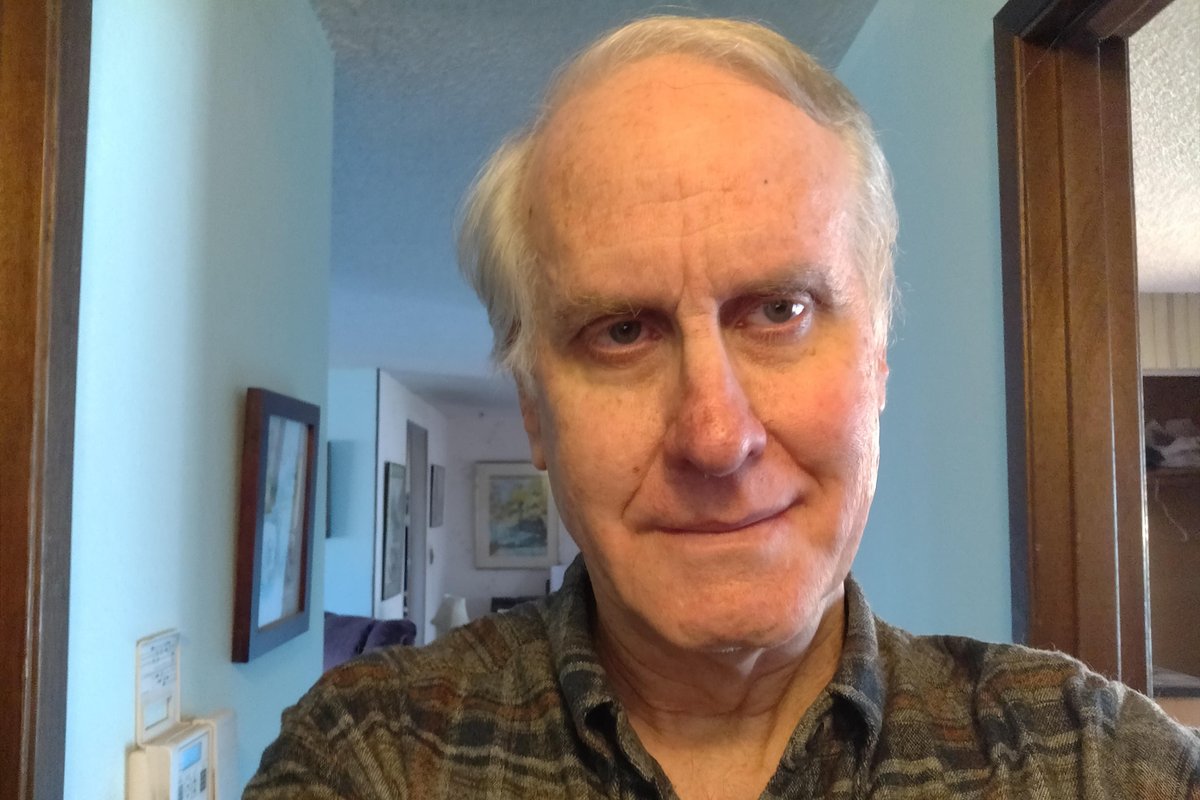
We recently launched a social media campaign on TikTok asking users to share their stories about why they "#workitdaily." This week, we heard from Robert Rosen, a Work It Daily member who wrote about his experiences as a professional with autism.
We wanted to share Robert's story with you to spread awareness about the unique challenges autistic individuals face in the workplace and to reassure other professionals who are also on the autism spectrum that they aren't alone.
Robert's Story

Photo courtesy of Robert Rosen
I have read multiple stories and reports saying that the unemployment/underemployment rate of people on the autism spectrum is through the roof. This source says that the unemployment rate alone is between 76% and 90% (although it may not distinguish between “high-functioning”—those perfectly capable of living independently without assistance—and “low-functioning” individuals).
I estimate that I have spent something on the order of 20 years either unemployed or underemployed (much of that time making less than a living wage), translating into maybe as much as a million dollars in lost income compared to if I had been fully employed at the level of my academic and professional peers.
My situation could be perhaps best described by how a therapist from my high school years described it: “A in intellectual, F in social.” One reason for my attachment to the dogs that appear on my Facebook profile is that I never have to worry about starting or maintaining a conversation with them, or their getting angry with me if I say or do the wrong thing.
When I first heard that getting a job was “all about networking,” I thought that it would be like for a paraplegic to hear that it was all about running. To say that my social network is small might be putting it mildly. That’s been pretty much the case for my entire life. And I see more evidence of it on Facebook. Virtually all of my relatives, former high school classmates, and such friends as I have with Facebook accounts who are currently active on it—and many who are not—have hundreds of Facebook friends. My older sister has over a thousand. I have about 40. And even that doesn’t tell the whole story, because in probably at least 80% of those cases I have had to be the one to make the friend request; I can hardly even remember the last time I received one unless you count a couple of people I didn’t know at all who were probably not making such request for any legitimate purpose.
I grew up basically before there was awareness of autism, and although it manifested itself far more starkly in my younger childhood days, my parents only found a regular psychiatrist to take me to, who apparently was not aware of it either because he eventually told them that he couldn’t help me. So I didn’t receive any sort of diagnosis of it until after the age of 40. (It was diagnosed as “atypical,” meaning that I didn’t show any mannerisms common with autistics, just social awkwardness.) There is some compensation in that I am not been saddled with the horrendous costs of housing and college education that younger people have experienced, which in combination with family trust and inheritance money and a relatively frugal lifestyle and low expenses have made the lack of income more bearable. (Although I did go back to college later in life to change careers, tuition was paid for with family trust money.)
One thing that the interviewer at the autism center said about me that puzzled me for a long time was that my communication style was almost entirely verbal. I do think I use gestures, but now I don’t think that’s what she was referring to, but rather that I tend to not pick up on nonverbal signals sent by others, which I can believe. My mother sometimes remarked how I had trouble looking people in the eye (a frequent autism symptom). Much later, I read that in an interview if you have trouble looking the interviewer in the eye, they will think that you are lying—certainly not true in my case. So reading that sent a signal to me of “Don’t trust nonverbal communication.”
My work career was reasonably stable for about my first decade in the professional workforce until I was laid off from a software engineer job at Boeing in the summer of 1993. Then it all went to pieces. Following the advice given in the book What Color Is Your Parachute, I focused my search on smaller companies, working largely from a book listing high-tech companies in the region. I did get some interviews, but offers were few and far between. And a pattern started that would repeat itself multiple times over the next several years: when I did get a job, I would lose it in a matter of weeks or sometimes even days. It was over two years before I got any job with any measure of stability, and starting another pattern it was one where I was badly underpaid compared to other jobs of that type (programming), and for a time in terrible working conditions to boot. After about three years there, I was laid off, and the pattern of lengthy unemployment and lost jobs began anew. After one last job in the field where I was laid off yet again after a little over a year and confronted at the time with a hiring slump in the tech field, I decided then to go back to college and try to change careers. It would be nine years before I would finally complete that (with a couple more very poor-paying programming jobs in the interim, including one project that I ended up never being paid for at all).
I ended up with a double degree in accounting and environmental science (in 2010), and despite a GPA that earned my admission into a national business honor society, I graduated right back into unemployment. At that point, a friend told me about the state Department of Vocational Rehabilitation (DVR). Things seemed to hit bottom at one point, though, when a DVR person told me that all they would be able to help me get would be an unpaid internship or a warehouse job.
If there is any job-finding resource that gives me the willies, it’s the free-form networking event. In situations like that, where people tend to separate themselves into groups, I have frequently ended up in what I jokingly call a “group of one” and as a result, I have ended up leaving more than one of these early. But one did have a payoff. I met a Boeing accounting director there and, eventually, my DVR counselor was able to set up a meeting between the three of us (and some other Boeing personnel). And although their answer to the question of whether I had the background that they might hire me for was “no,” I did get a call from the director a short time later about a temp job there. And it would lead, eventually, to four more temp jobs at Boeing. But no permanent ones. And the employment timeline after graduation was fifteen months unemployed, followed by four months of employment, followed by eight more months unemployed (other than part-time work at one of those very poor-paying jobs), followed by ten months of employment, followed by four more months unemployed before work became somewhat more steady. But the temp jobs came with very few benefits—I didn’t get a single day of paid vacation the whole time, for example—and they didn’t give me any career progression.
Finally, after one more job paying virtually nothing, I landed a job that seemed to promise the end of my troubles, as an auditor with the federal government. By then it had been nearly a quarter century since that layoff from Boeing. And for the first couple of years, that promise did seem to be a reality. The high-water mark came when, because of a conflict-of-interest issue with a pension, I was temporarily transferred out of the office that audited Boeing to one that audited many companies in the area. The supervisor at the second office had doubts about me because the Boeing office progressed new employees much more slowly than theirs. But I won him over, so much so that he suggested I put in for a permanent transfer. But I didn’t end up doing so first because my supervisor at the Boeing office said that my chances for approval wouldn’t be good because of low seniority, and second because that second supervisor was soon rotated to work for the headquarters office.
But as seemed to inevitably happen, me and job security were soon separated again. After several months the conflict of interest was resolved and I was sent back to the Boeing office. Then a few months later, my supervisor there retired, and for the first time in over 20 years, I found myself under a supervisor with a short temper. But worse was yet to come. After several more months, I found myself put under a newly transferred supervisor with an even worse temper, and one who also would lose her temper for just about any reason at all. That is twice now that I have found myself under a supervisor like that, and both ended badly for me. All the more depressing after reading an article saying that federal jobs are as secure as they come, with only 4,000 losing their jobs out of 1.6 million over a period of several years. (My work group did seem to be an exception, as another person under the same supervisor was terminated just a few months later. But she succeeded in getting another federal job even before the termination date, while I remain unemployed.)
My newest cycle of unemployment is at 3 ½ months and counting. So far, every interview I have had has resulted in failure—if an initial interview, no second interview. If there is only one interview required, then no offer.
How Does Autism Affect People In The Workplace?

Bigstock
If you're like Robert and have had to navigate the workplace as a person with autism, you probably relate to his story. What he said is true: the unemployment/underemployment rate for people with autism is very high, to the point that the majority of autistic adults are unemployed or underemployed despite having the education, skills, and experience to succeed at work and make a positive difference in the workplace.
Why Do You #WorkItDaily?
@workitdaily Thank you Fatima for being the first to join our @tiktok social media campaign♥️♥️♥️@fatimalhusseiny We can't wait to share your story with the world! Check out our campaign to learn more! @workitdaily #workitdaily #WhyIWorkItDaily #careertiktok #careertok #jobtok #edutok #mywhy #purpose #passion #worktolive #live #life #love ♬ Epic Music(863502) - Draganov89
Robert shared his story with us. Will you?
Share your story on TikTok, tag @workitdaily, and add #workitdaily to your post. You could get featured on our website and social media feeds!
Let's start changing the narrative through storytelling today!

 Bigstock
Bigstock Bigstock
Bigstock Bigstock
Bigstock


